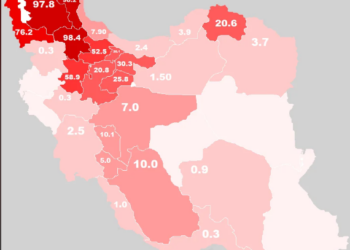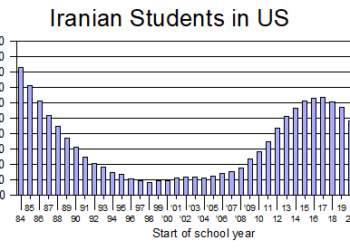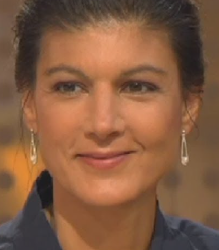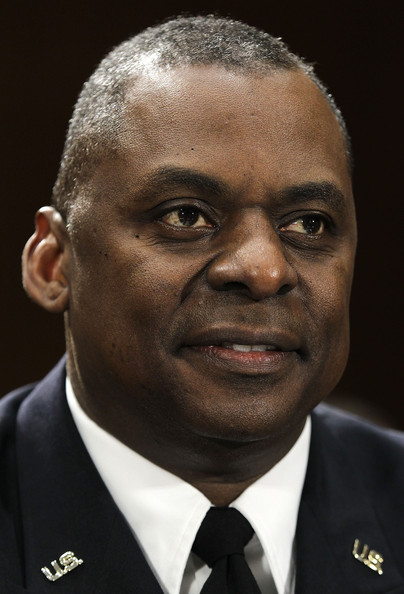January 22, 2021
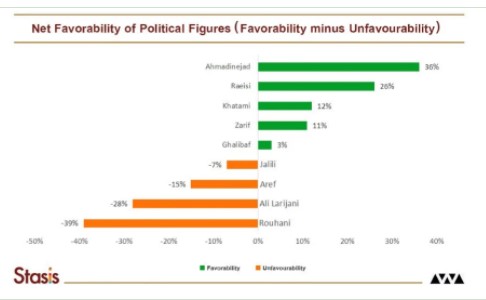 A new poll taken across Iran shows that former President Mahmud Ahmadi-nejad is the only politician with substantial support to be elected president in next June’s election.
A new poll taken across Iran shows that former President Mahmud Ahmadi-nejad is the only politician with substantial support to be elected president in next June’s election.
Of course, he must first get passed the 12-man Council of Guardians, which decides who can go the ballot—and the odds of the Guardians approving Ahmadi-nejad as a candidate are low. After all, they rejected him in 2017.
The new poll asked Iranians which of five possible candidates they would support. Ahmadi-nejad won the support of 37 percent, with Majlis Speaker Mohammad-Baqer Qalibaf a distant second with just 10 percent. The other options—Saeed Jalili, the far right former secretary of the Supreme National Security Council, former Majlis Speaker Ali Larijani, and Reformist leader Mohammad-Reza Aref—only polled 2 or 3 percent each. Oddly, the poll did not ask about Judiciary Chairman Ebrahim Raisi, who is expected to run and have major conservative backing.
The poll also found that 46 percent, almost half of those polled, didn’t like any of the options or had no preference.
Ahmadi-nejad was the leading preference among all four demographics, with the support of 50 percent of rural voters, 45 percent of those without a college degree, 33 percent of urban voters and 19 percent of college graduates.
The poll also asked for the person’s party preference. Reformists and Principleists each drew 11 percent support. But 30 percent answered “I don’t know” while 49 percent said they disliked both the Reformists and Principleists.
And the poll named nine politicians and asked those polled whether they had a favorable or unfavorable view of that person. Ahmadi-nejad came out best with a net favorability of 36 percent, followed by Raisi with a net favorability of 26 percent. That certainly appears to give Raisi the lead with mainstream Principleists.
President Rohani did dismally, with a net UNfavorable rating of 39 percent. The next on the negative list was former Speaker Larijani, with a net UNfavorable rating of 28 percent.
The poll was taken among 1,136 Iranian adults in Iran from October 22 to 28 by telephone. It was taken by the Stasis Consulting polling firm on behalf of IranWire, a Toronto-based news outlet.
A key question is how many people will vote and how many will boycott the election. In the Majlis elections last February, only 42 percent voted, far fewer than in any election before under the Islamic Republic. In the new poll, only 44 percent said they planned to vote in the presidential election next June. Another 26 percent said they planned to boycott the polls and the remaining 30 percent said they were undecided about voting or declined to answer the question.
Arash Ghafouri, CEO of Stasis Consulting, told IranWire, “In 2015 we did a survey about the popularity of Mr. Ahmadi-nejad and the answers showed a sharp divide between two extremes. We had asked people how, on a scale of zero to 20, would they grade Ahmadi-nejad. Those who graded him zero and those who graded him 20 were in the majority.
“This time, however, we found fewer people who totally loved or hated him. The number of those who, in the past, had a significant problem with him has fallen and the number of those in the middle bracket has increased.”
Ghafouri said, “With regard to ‘unpopularity’ we see the same changes. For example, in 2016 [Foreign Minister Mohammad-Javad] Zarif’s disapproval rating was at seven percent, but this is now at 34 percent. The unpopularity of Rohani has risen from 21 percent to 65 percent and [former President Mohammad] Khatami’s disapproval rating that was 22 percent in that year is now 33 percent. But Ahmadi-nejad’s unpopularity has fallen from 39 percent to 28 percent.
”These findings show that people are less enamored with those they liked at one time, and have changed their opinions of them because they have been disappointed in them. In 2015, 25 percent of the people considered the Reformist camp ‘effective’ and liked them, but this year this number has fallen to 11 percent. Meanwhile, the popularity of the Principleists has not changed to a meaningful degree. Their popularity stood at 13 percent and now stands at 11 percent.”
He went on to say, “In recent years Mr. Ahmadi-nejad has presented a new image of himself to the public, one that stands against the ruling oligarchy—a kind of champion of the downtrodden and the oppressed. He did this before, during his presidency, by giving out cash subsidies. He has been trying to make himself into a symbol of opposition to unpopular figures. In the survey, for instance, you can see how unpopular the Larijani brothers [former Majlis Speaker Ali Larijani and Sadeq Larijani, former head of the Judiciary] are. In fact, the fight between the Larijanis and Ahmadi-nejad and Ahmadi-nejad’s claim that ‘I am standing against those who want to plunder taxpayer money’ is what has worked to his benefit.”
















